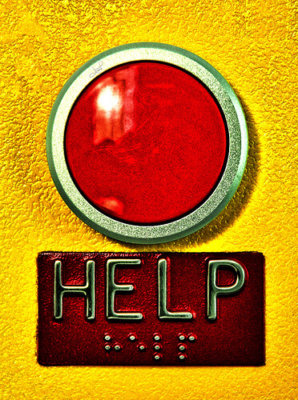Brief Therapy – Does it Really Work and Is it For You?

By: Florida Memory
What is brief therapy?
Brief therapy, also called “short-term therapy” or “time-limited therapy”, is any talk therapy which has a limited time span.
How limited is usually decided between you and your therapist in the first few sessions. It could be as few as 10 appointments, or as many as 24 or more.
Which talk therapies are brief ones?
The following are examples of shorter forms of therapy offered in the UK:
COGNITIVE BEHAVIOURAL THERAPY (CBT) is about helping you recognise your negative thought patterns, and how they cause behaviours that creates difficulties for you in life. You are taught ways to change your thoughts and reactions in order to create better scenarios for yourself. CBT focuses on the difficulties you are having now, rather than looking to your past.
COGNITIVE ANAYLTIC THERAPY (CAT) is focussed on looking at patterns of relating, and how your ways of acting with others affect your life as a whole. Cognitive analytic therapy also uses the client-therapist relationship as a tool in and of itself. Unlike CBT, cognitive analytic therapy does look at your past and how it influences your present.
DYNAMIC INTERPERSONAL THERAPY (DIT) believes that trouble relating to others is behind most cases of depression, and that the patterns of relating you learned as a child are behind any stress in your current relationships. DIT thus helps you create new patterns for yourself that lead to more useful ways of interrelating and thus better moods. It comes from psychodynamic therapy, so might be a good fit if you are intrigued by the psychodynamic approach but don’t yet want to commit long-term.
COUNSELLING is an umbrella term that can apply to several talk therapies, and is sometimes used interchangeably with psychotherapy (read our article on psychotherapy vs counselling for more clarification). But in general counselling can be more focussed on present over past issues, and it’s possible to arrange to have counselling for several months, whereas psychotherapy tends to take place over several years.
SOLUTION FOCUSED BRIEF THERAPY helps you source your past successes and then use them to create future confidence, success and happiness for yourself. In this way it differs from other therapies by not focussing on your issues so much as your strengths.
How is brief therapy different than long-term therapy?
Aside from not lasting as long, what else is different?
It’s important to recognise that the types of brief therapy are all different from each other, much like each kind of long-term therapy is.
But in broad terms, it could be said that brief therapy tends to be different in the following ways:
Brief therapies have a more distinct goal. They tend to have a tighter focus than long-term therapies, or zone in on just one area of psychological health. For example, a brief therapy might only look at your relationships, or just on your patterns of negative thinking.
They can involve homework. CBT, for example involves assignments that are requirements every week, and CAT often also asks the client to do some work alone.
Brief therapies are often more structured. Long-term therapies can be a process of seeing what comes up in each session, or might even be client-led, where you decide what you want to look at each session. Brief therapies tend to have more of a structure, not just within each session but also with an agenda for the overall progress of your sessions.
There might be less focus on the past. Brief therapies work to help your current life improve and some, like CBT, only focus on present day issues. Even if a short-term therapy does also look at your past, it won’t be as an in-depth exploration as a long-term therapy.
Does brief therapy really work?

By: tsaiproject
Cognitive behavioural therapy in particular has been the focus of much research, so is what is called an ‘evidence based’ therapy (proven to work). A 2012 review of CBT research that amalgamated results from 269 studies found that CBT was especially a good choice for anxiety and anxiety disorders, and often proved equal to long-term therapies for depression. The one area it did not seem effective was personality disorders, where longer term psychodynamic therapy produced better results.
Dynamic interpersonal therapy is now the subject of research. One such study on DIT found a significant reduction of depression symptoms in all but one subject, but the study only had sixteen subjects, so more research needs to be done. However, it is a therapy that is effective enough it is now one of the therapy forms offered by the NHS along with CBT.
But will brief therapy work for you in particular?
Whether a therapy ‘works’ comes down to you as the client, too. Are you at therapy because you want to be, or because a partner or family member has pushed you into it? Is it the right therapy form for you? Just because a therapy form is ‘popular’ or the going trend, or your friend likes it, doesn’t mean it’s the right fit. And is the therapist right for you? Finding a therapist that is a match for you can mean the difference between results or frustration.
It’s also important to remember that therapy is a process. You can’t decide after one session if it’s ‘working’. Like any relationship (and therapy is a relationship between you and your therapist), it requires commitment and being fully present. If you bring these two things to your session, it’s unlikely you won’t see at least some benefits from counselling or psychotherapy, whether that is with a brief therapy or a long-term one.
What questions should you ask yourself to know if brief or long-term therapy is right for you? Keep an eye out for our next piece that will answer this for you…
Do you want to share your experience of trying brief therapy? Do so below…





